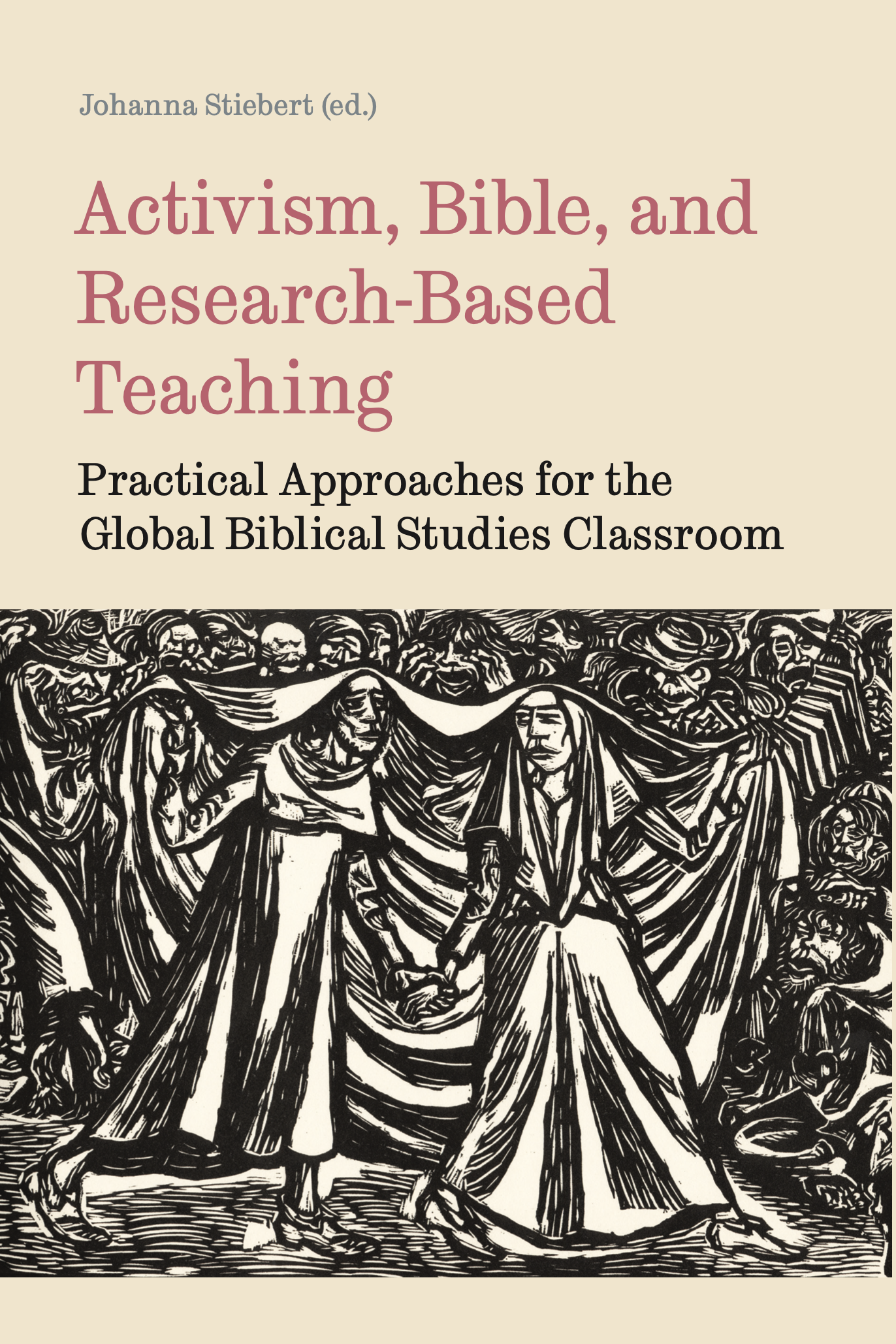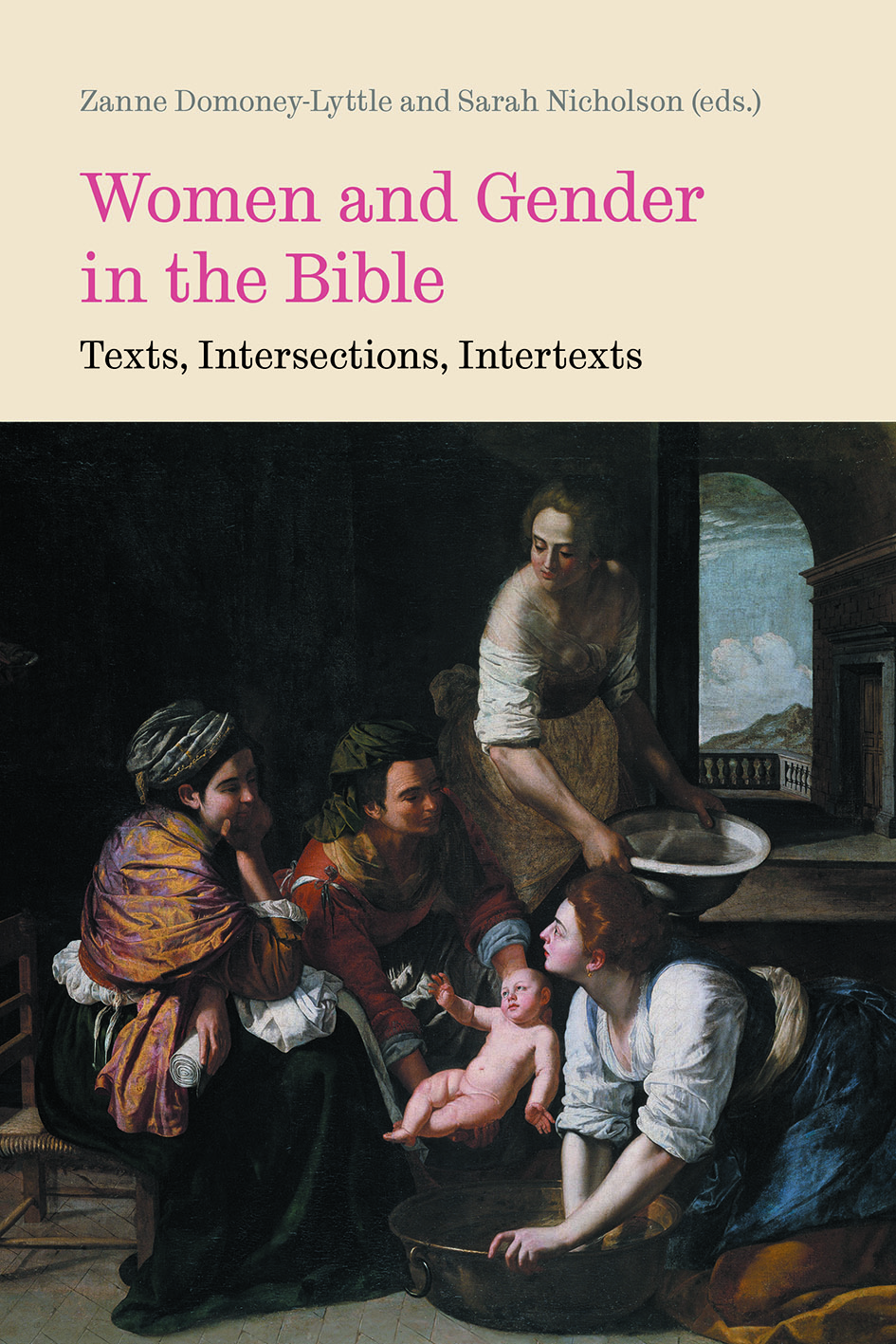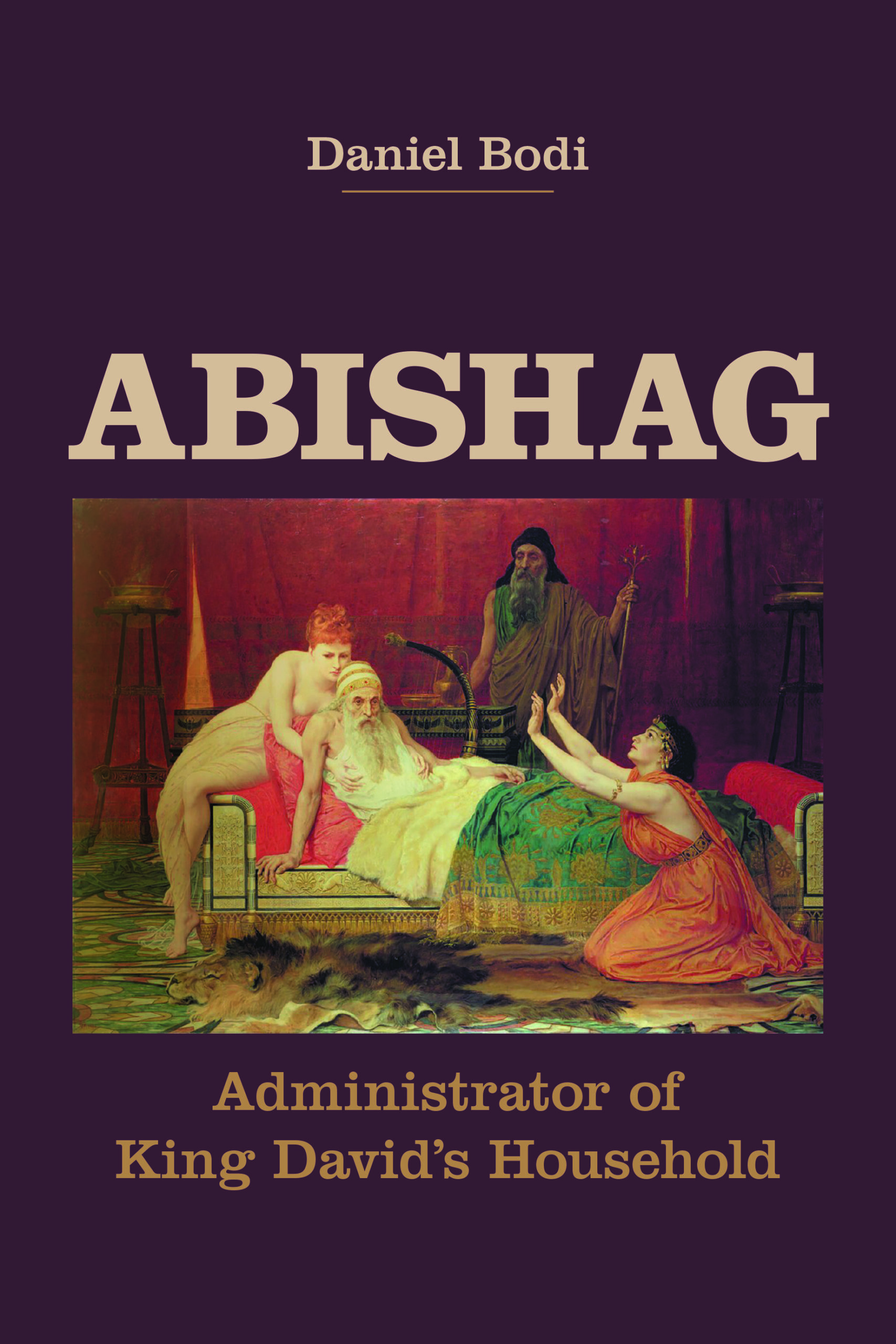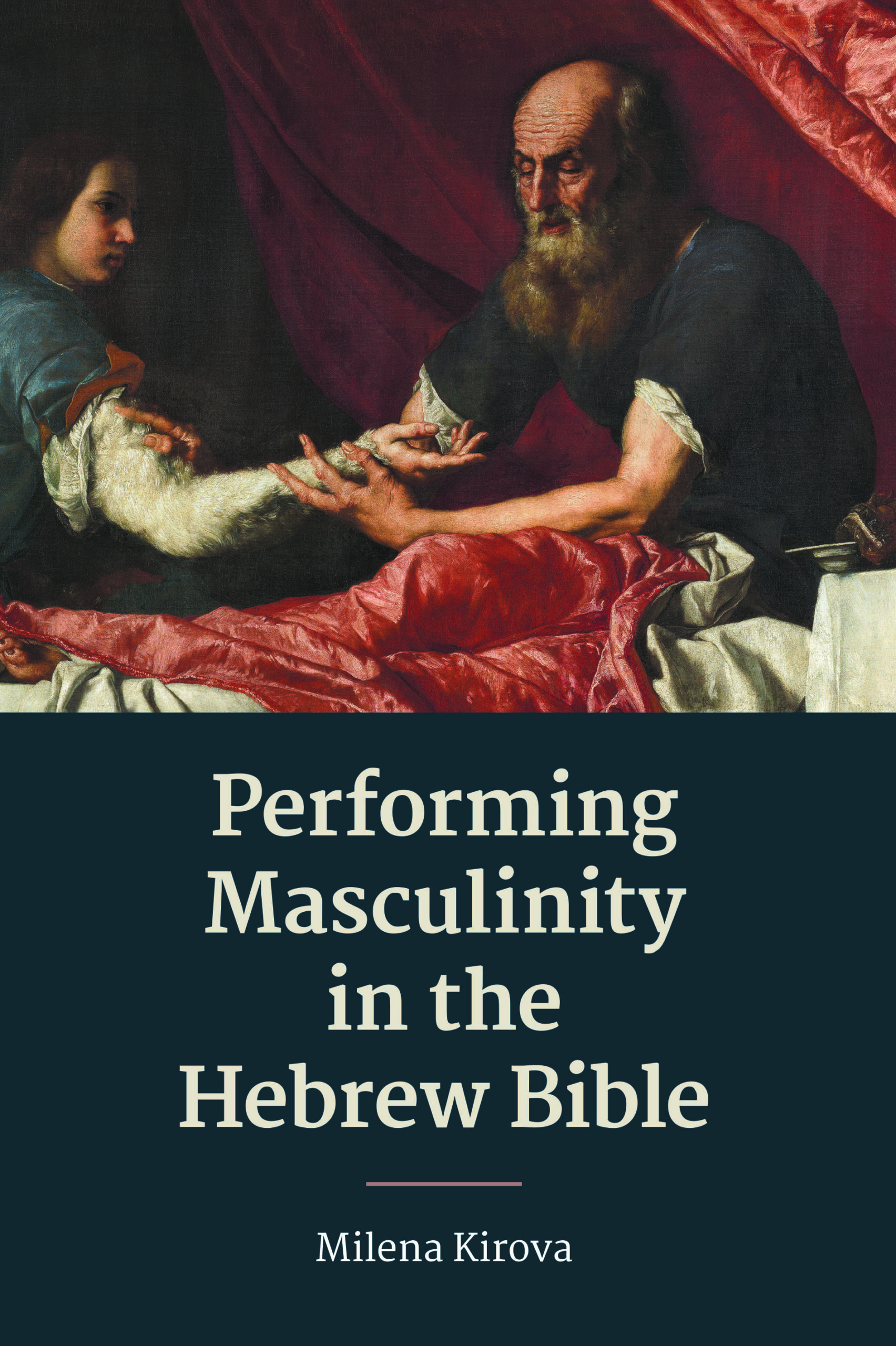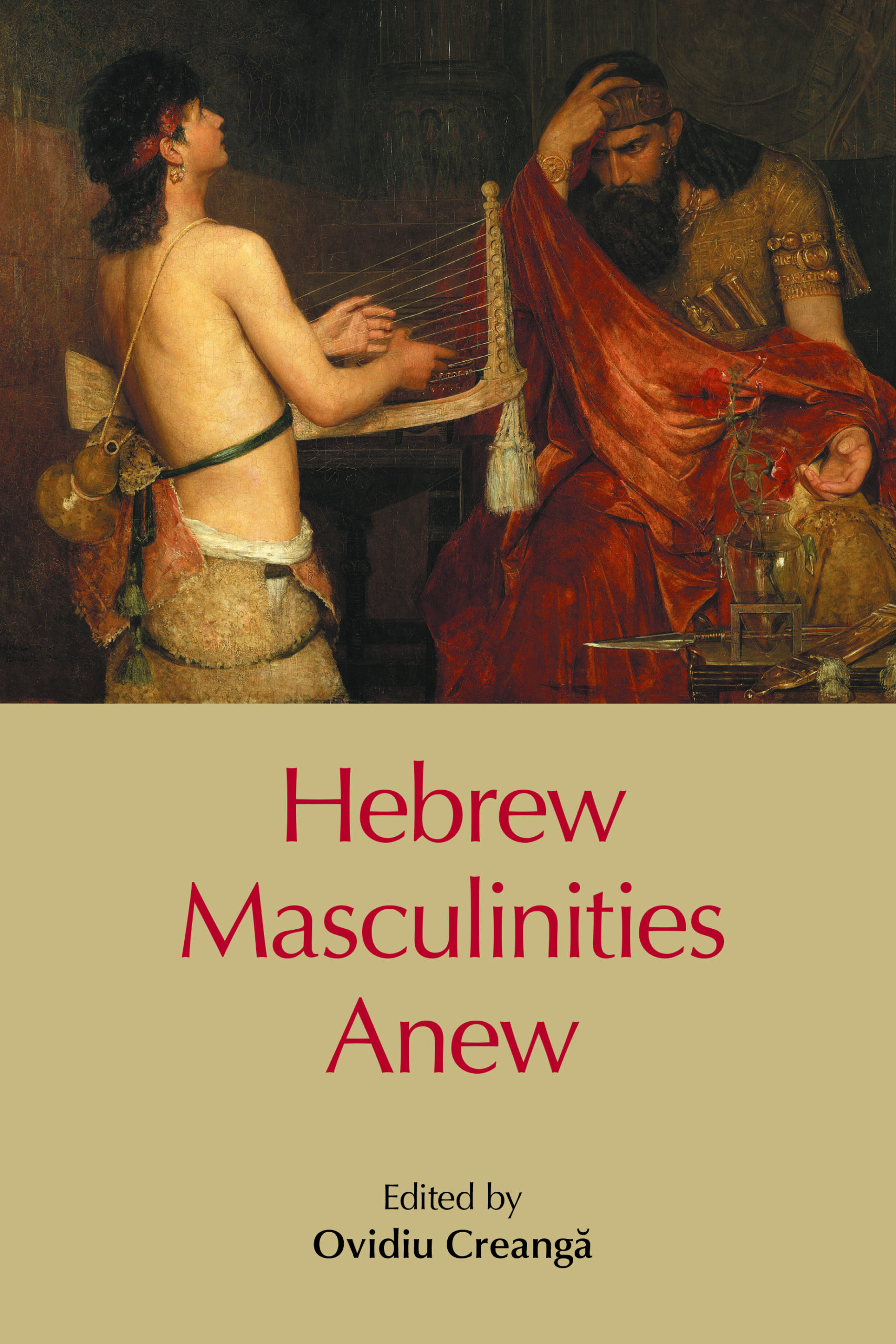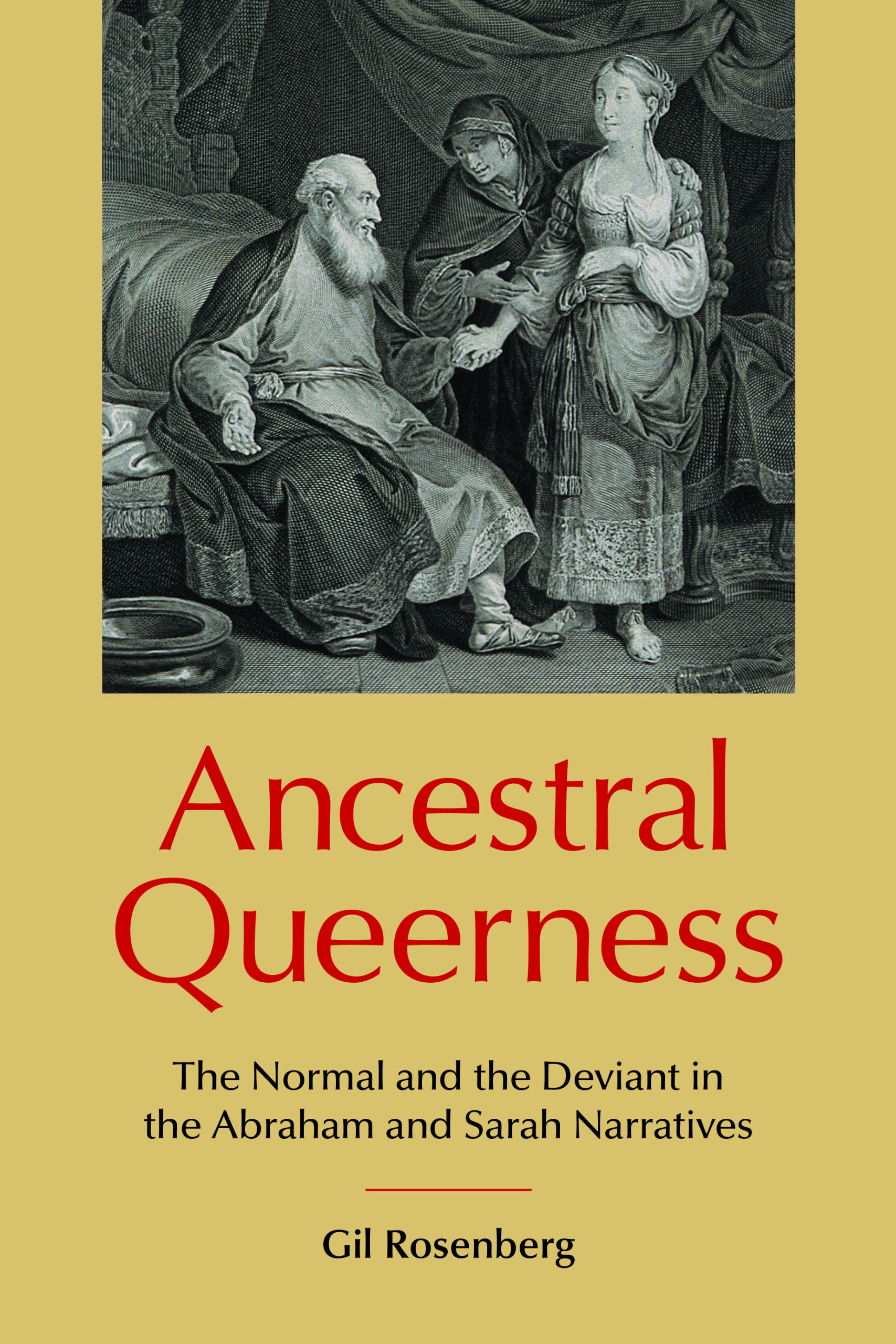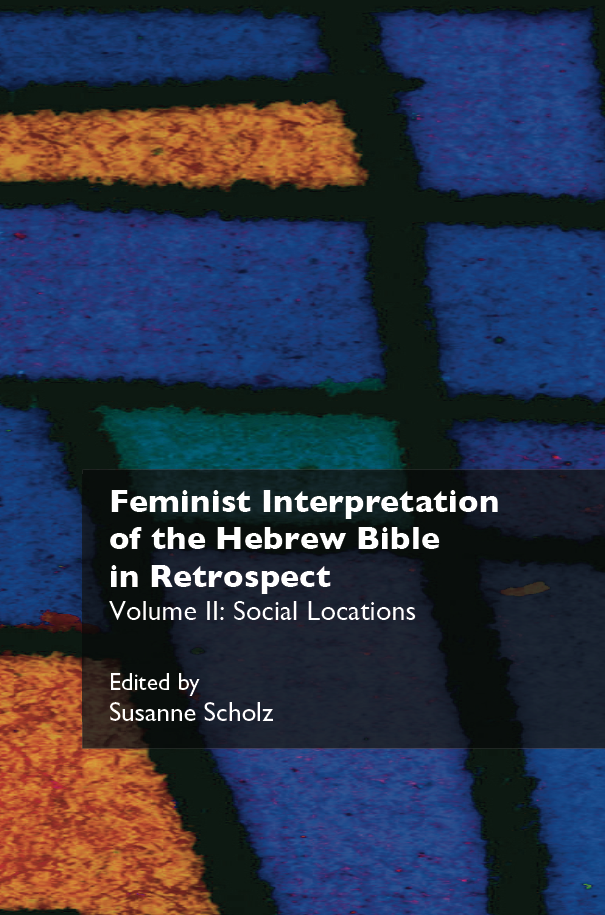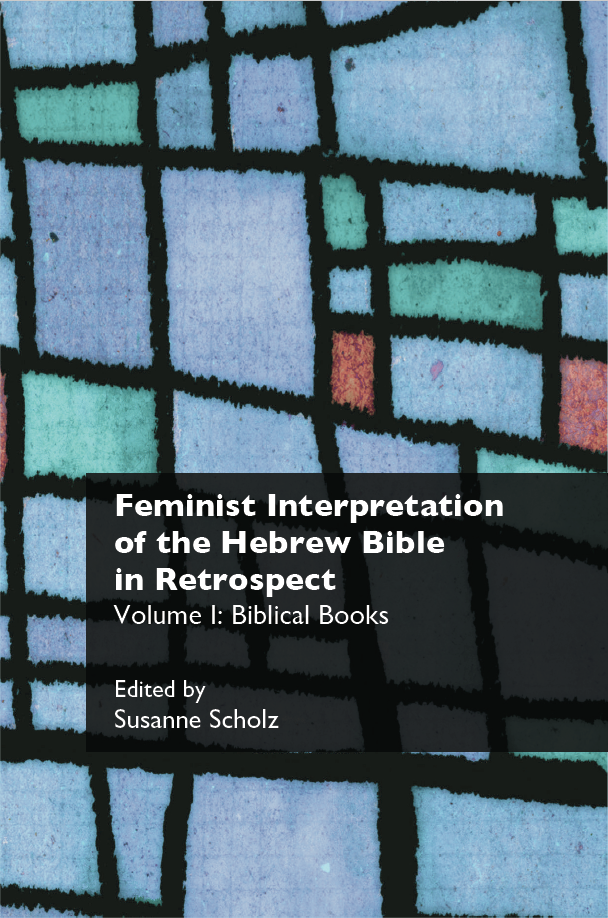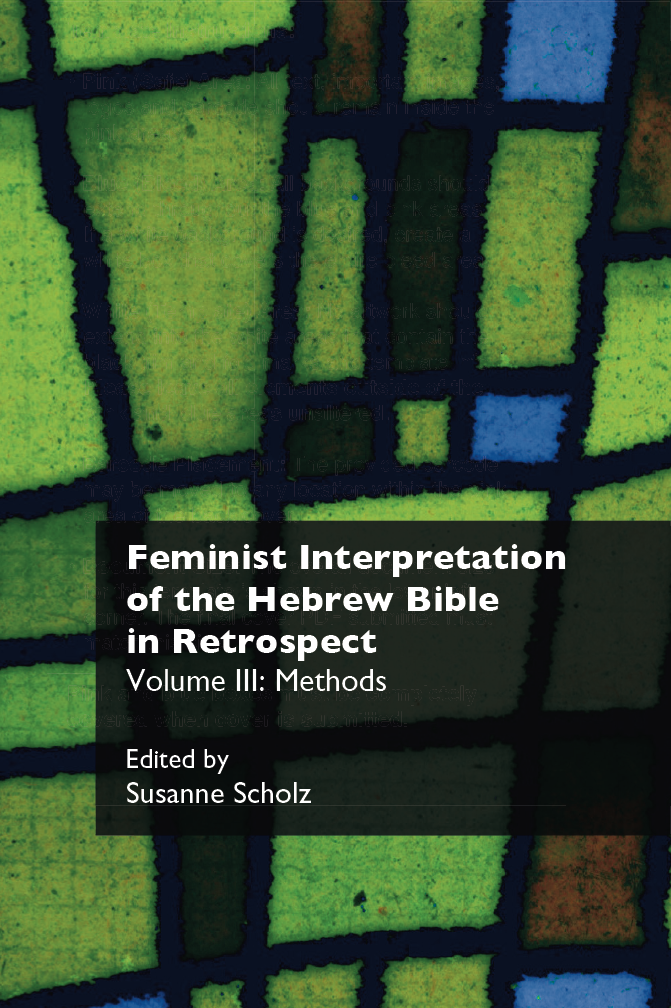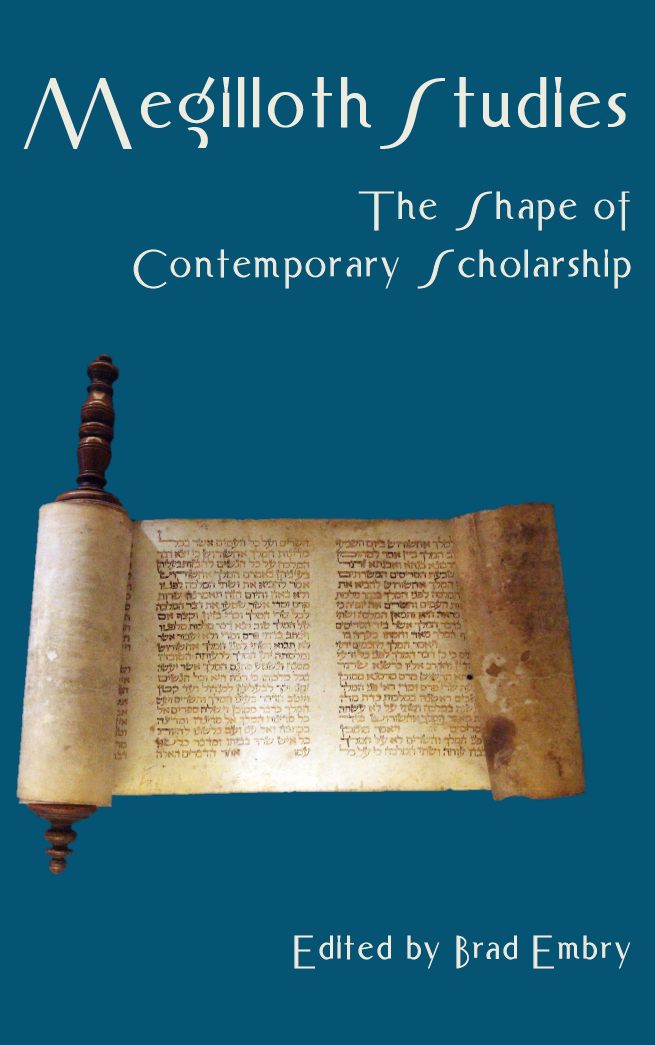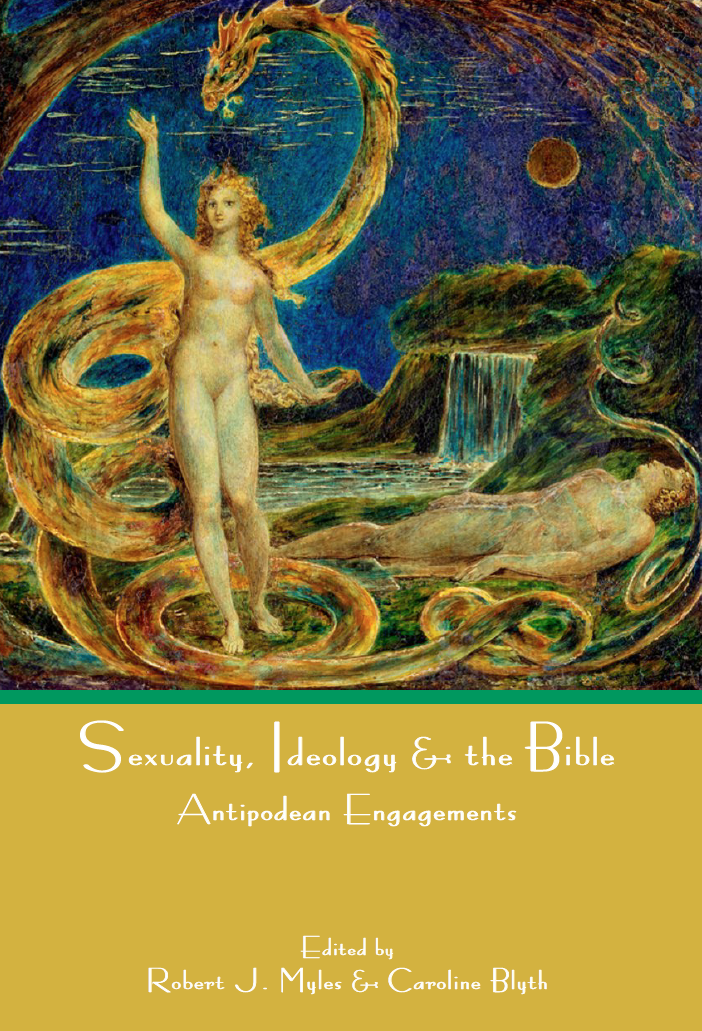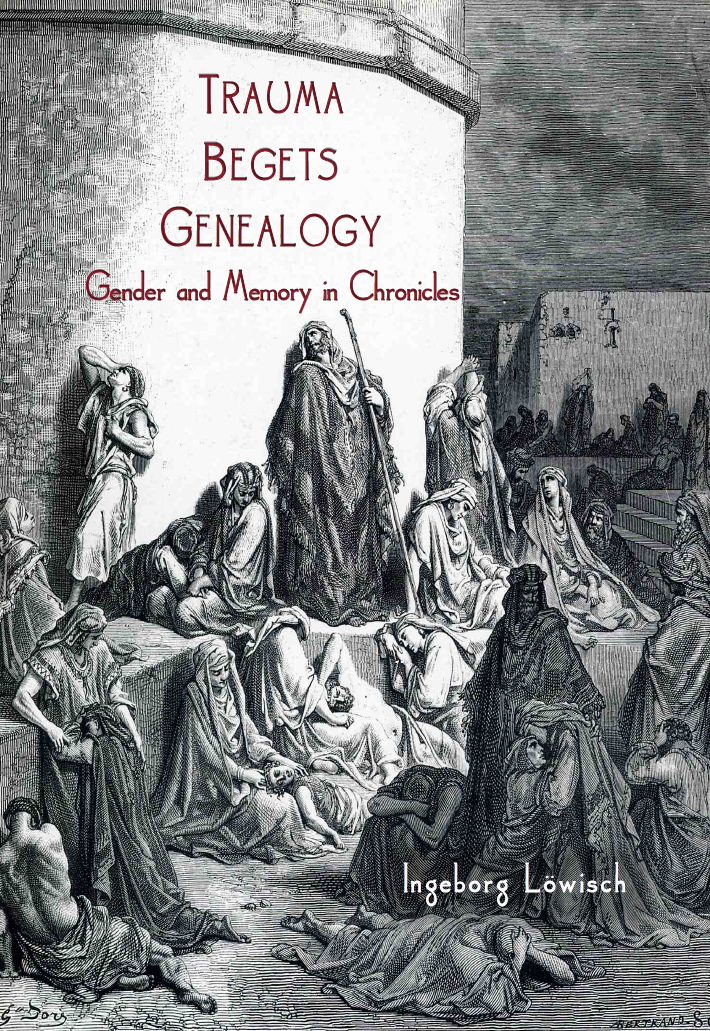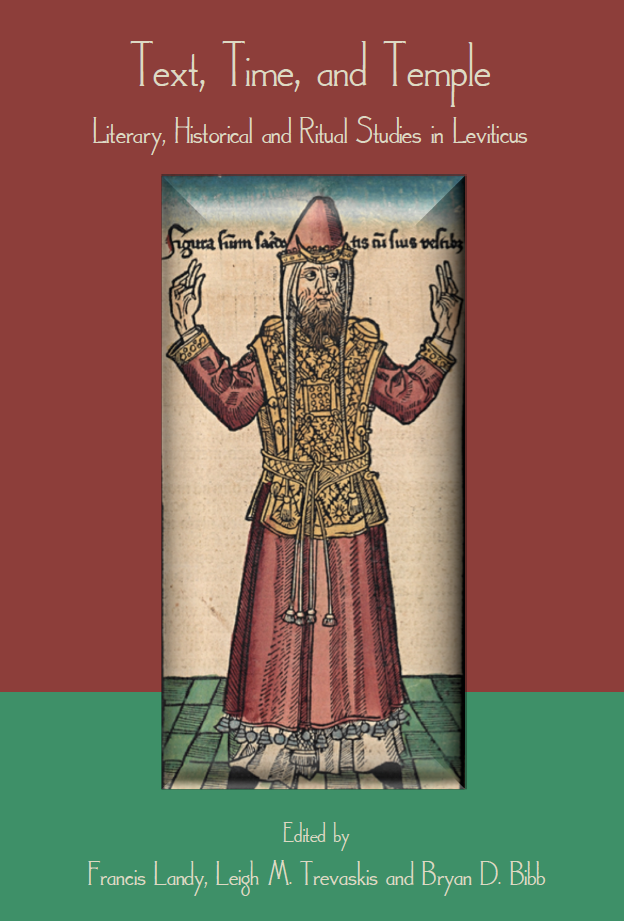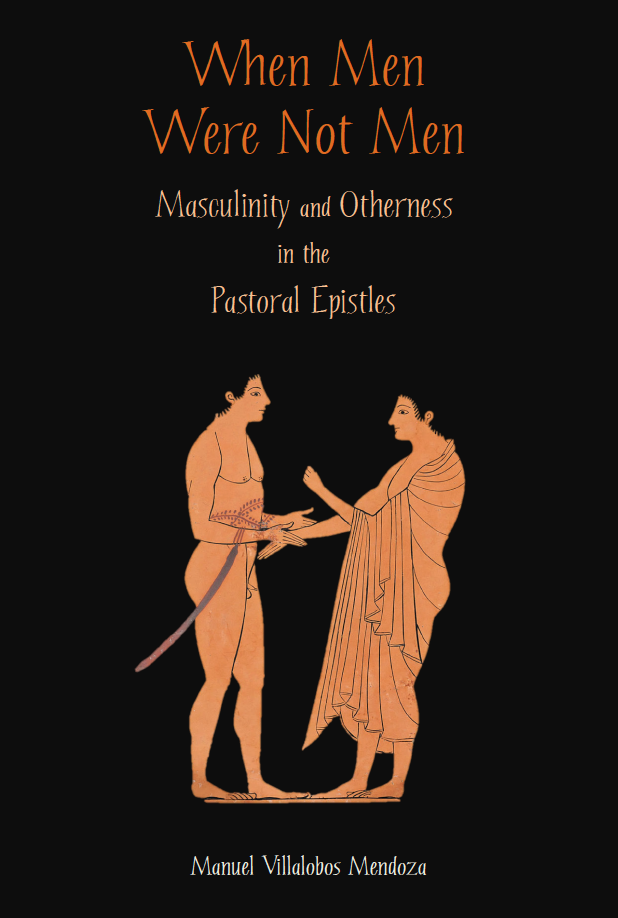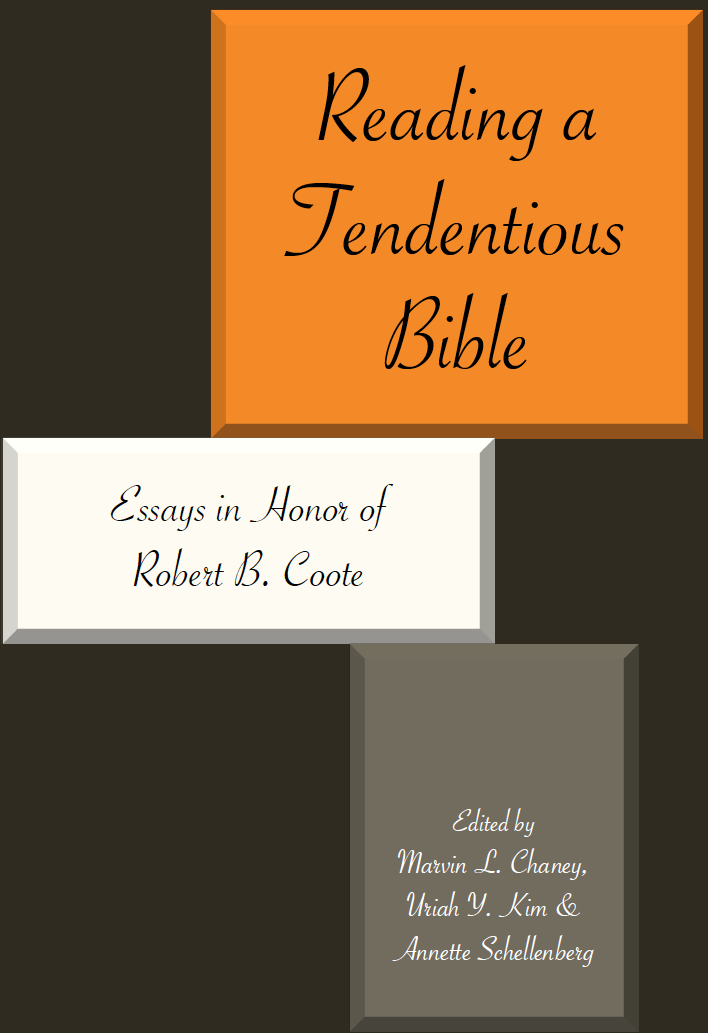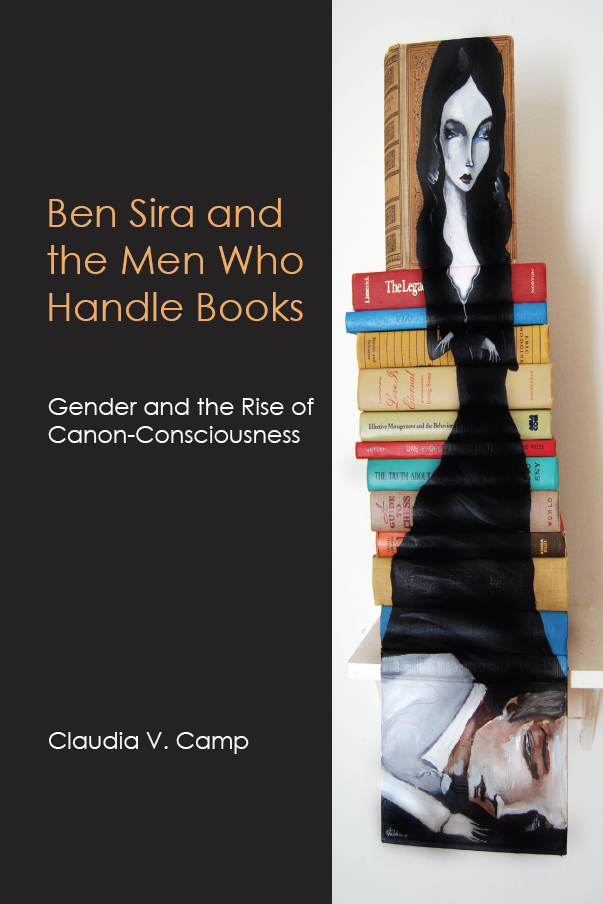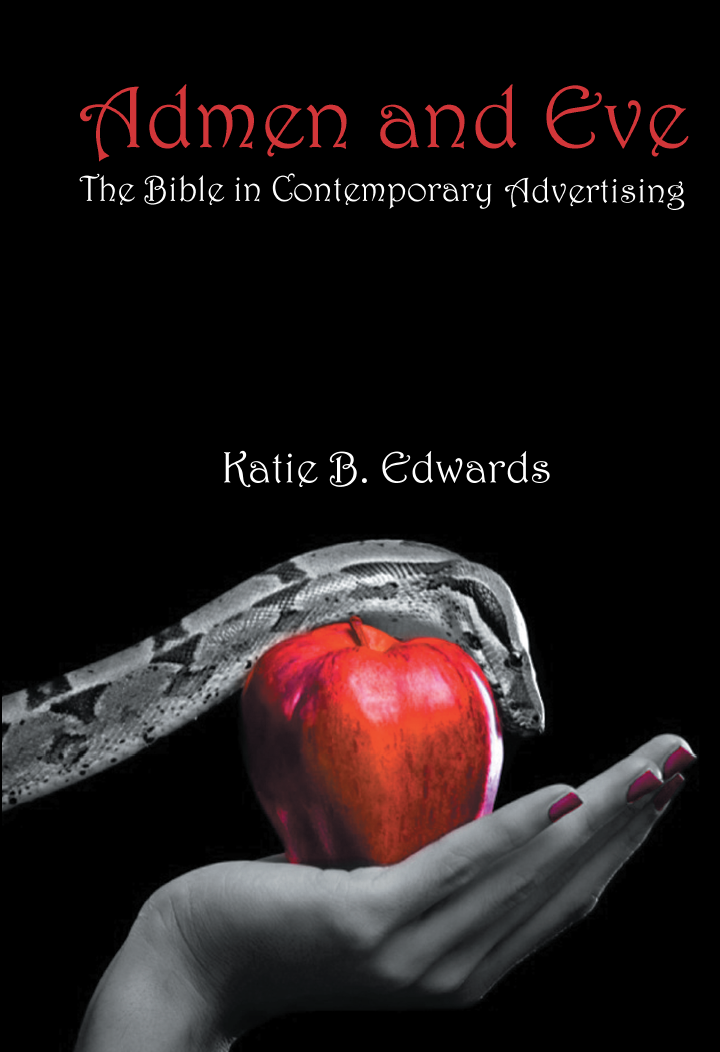Doing Biblical Masculinity Studies as Feminist Biblical Studies? Critical Interrogations
Published: Oct 2023
£60.00
This anthology presents a collaborative interrogation at the intersection of feminist biblical studies and biblical masculinity studies. The included essays make a compelling case for both feminist and masculist readers to recognize the advantage of engaging with each other. As they join forces, they produce research that not only brings female characters, gender issues or queer interpretation histories to the forefront but also interrogates critically male characters as well as androcentric and heteronormative conventions, viewpoints and norms. Connections to geopolitical, ethno-religious and other intersectional issues are part and parcel of the diverse range of approaches.
As a whole, then, the book expands the scholarly discourse from essentializing attention on ‘women’ or ‘men’ to a multifaceted (de)construction of gender that exposes gendered structures of domination in comprehensive ways. The shared goal is to halt reactionary gender discourses and to foster intersectional comprehension of texts and scholarship. Theoretical, historical, contemporary and textual considerations underscore the methodological, hermeneutical and exegetical value of this kind of work.
The volume is organized into three main parts. First, ‘Theoretical Considerations’, presents two essays illuminating meta-level assumptions and developments when biblical scholars embrace the interrelationship of feminist and masculinity studies in their work. Second, ‘Historical and Contemporary Considerations’, contains three essays examining the Bible in past and present cultural contexts. Third, ‘Textual Considerations’, features four essays focusing on specific passages with lenses informed by masculinity and feminist studies. All nine essays, and the three responses addressing them, invite readers to understand, critique and interrupt phallogocentric assumptions in texts, interpretation histories, and research of the Hebrew Bible.
Doing Biblical Masculinity Studies as Feminist Biblical Studies? Critical Interrogations
£60.00
This anthology presents a collaborative interrogation at the intersection of feminist biblical studies and biblical masculinity studies. The included essays make a compelling case for both feminist and masculist readers to recognize the advantage of engaging with each other. As they join forces, they produce research that not only brings female characters, gender issues or queer interpretation histories to the forefront but also interrogates critically male characters as well as androcentric and heteronormative conventions, viewpoints and norms. Connections to geopolitical, ethno-religious and other intersectional issues are part and parcel of the diverse range of approaches.
As a whole, then, the book expands the scholarly discourse from essentializing attention on ‘women’ or ‘men’ to a multifaceted (de)construction of gender that exposes gendered structures of domination in comprehensive ways. The shared goal is to halt reactionary gender discourses and to foster intersectional comprehension of texts and scholarship. Theoretical, historical, contemporary and textual considerations underscore the methodological, hermeneutical and exegetical value of this kind of work.
The volume is organized into three main parts. First, ‘Theoretical Considerations’, presents two essays illuminating meta-level assumptions and developments when biblical scholars embrace the interrelationship of feminist and masculinity studies in their work. Second, ‘Historical and Contemporary Considerations’, contains three essays examining the Bible in past and present cultural contexts. Third, ‘Textual Considerations’, features four essays focusing on specific passages with lenses informed by masculinity and feminist studies. All nine essays, and the three responses addressing them, invite readers to understand, critique and interrupt phallogocentric assumptions in texts, interpretation histories, and research of the Hebrew Bible.
Women and Gender in the Bible: Texts, Intersections, Intertexts
Published: Dec 2021
£60.00
This volume has its origins in a conference entitled 'Women and Gender in the Bible and the Ancient World' (University of Glasgow, 2019), a symposium with a deliberately broad scope to encourage fresh research that might transcend already-defined categories. With responses from both emerging and established academics, as well as professionals outside the academy, this collection offers a breadth of explorations of the gendered landscapes and horizons that construct, and subvert, biblical womanhood, and its reception. Familiar figures such as Mary Magdalene, Eve, and Tamar are treated alongside unnamed women whose anonymity is revealing.
Exploring a range of performances from ritual to resistance, and from storytelling to sex work, the contributors aim to capture connections between biblical figures and their socio-political worlds, their afterlives and reworkings, and their continued resonances for today's readers and scholars of the Bible. Questions are raised about gendered status, transformation, territorialization and oppression of biblical women: the significance and complexity of their relationships within and outwith the texts that both constitute their confinements and provoke new lineages.
Women and Gender in the Bible offers challenging perspectives on our understanding of how we can establish creative transactions between ancient patriarchal cultures and modern post-industrial cultures via counter-readings, misreadings and outraged readings. Casting off the intolerable weight of hundreds of years of androcentric reception is both a starting point and an ultimate goal.
Women and Gender in the Bible: Texts, Intersections, Intertexts
£60.00
This volume has its origins in a conference entitled 'Women and Gender in the Bible and the Ancient World' (University of Glasgow, 2019), a symposium with a deliberately broad scope to encourage fresh research that might transcend already-defined categories. With responses from both emerging and established academics, as well as professionals outside the academy, this collection offers a breadth of explorations of the gendered landscapes and horizons that construct, and subvert, biblical womanhood, and its reception. Familiar figures such as Mary Magdalene, Eve, and Tamar are treated alongside unnamed women whose anonymity is revealing.
Exploring a range of performances from ritual to resistance, and from storytelling to sex work, the contributors aim to capture connections between biblical figures and their socio-political worlds, their afterlives and reworkings, and their continued resonances for today's readers and scholars of the Bible. Questions are raised about gendered status, transformation, territorialization and oppression of biblical women: the significance and complexity of their relationships within and outwith the texts that both constitute their confinements and provoke new lineages.
Women and Gender in the Bible offers challenging perspectives on our understanding of how we can establish creative transactions between ancient patriarchal cultures and modern post-industrial cultures via counter-readings, misreadings and outraged readings. Casting off the intolerable weight of hundreds of years of androcentric reception is both a starting point and an ultimate goal.
Abishag: Administrator of King David’s Household
Published: May 2021
£80.00
Following Daniel Bodi's previous monographs on the three wives of King David —Michal, Bathsheba and Abigail —here is a fourth one on Abishag, the last woman in his life. It has not been recognized before how decisive a role she played as a palace administrator in David's final political crisis, Adonijah's coup d’état , and Solomon's proclamation as king.
Hitherto, Abishag has been given androcentric readings. Her position as administrator has been demoted to that of a mere housekeeper, bedfellow or even hot-water bottle. Some rabbinic authors transformed her into an androgynous being, claiming an intersex person warms better than a young female virgin. In fact, the term for Abishag's office as sōkenet is nothing but the feminine form of sken 'palace steward', a well-known functionary across the Semitic world. Much more than a simple housekeeper, Abishag wields administrative power with a legal role as a witness in Solomon's appointment.
Exploring further the role of women at royal courts, Bodi also offers a comparative analysis of the famous queens who played a role in the royal succession as kings' mothers in Egypt, Mari, Hatti, Ugarit and Assyria. Solomon's appointment as David's successor results from a palace putsch, executed with cunning and craftiness, which are to be understood as archaic forms of wisdom in the Hebrew Bible, classical Greece and the ancient Near East.
The stories of David's wives —and of Abishag —together form a Hebrew document in the style of an Advice to a Prince. An interesting comparison is drawn between David's four wives and the four females Odysseus encounters in Homer's Odyssey: Circe, Calypso, Nausicaa and Penelope. Strikingly, the Hebrew version of the Advice to a Prince and the Homeric Epic were being written at roughly the same time, the end of the eighth century bce.
Abishag: Administrator of King David’s Household
£80.00
Following Daniel Bodi's previous monographs on the three wives of King David —Michal, Bathsheba and Abigail —here is a fourth one on Abishag, the last woman in his life. It has not been recognized before how decisive a role she played as a palace administrator in David's final political crisis, Adonijah's coup d’état , and Solomon's proclamation as king.
Hitherto, Abishag has been given androcentric readings. Her position as administrator has been demoted to that of a mere housekeeper, bedfellow or even hot-water bottle. Some rabbinic authors transformed her into an androgynous being, claiming an intersex person warms better than a young female virgin. In fact, the term for Abishag's office as sōkenet is nothing but the feminine form of sken 'palace steward', a well-known functionary across the Semitic world. Much more than a simple housekeeper, Abishag wields administrative power with a legal role as a witness in Solomon's appointment.
Exploring further the role of women at royal courts, Bodi also offers a comparative analysis of the famous queens who played a role in the royal succession as kings' mothers in Egypt, Mari, Hatti, Ugarit and Assyria. Solomon's appointment as David's successor results from a palace putsch, executed with cunning and craftiness, which are to be understood as archaic forms of wisdom in the Hebrew Bible, classical Greece and the ancient Near East.
The stories of David's wives —and of Abishag —together form a Hebrew document in the style of an Advice to a Prince. An interesting comparison is drawn between David's four wives and the four females Odysseus encounters in Homer's Odyssey: Circe, Calypso, Nausicaa and Penelope. Strikingly, the Hebrew version of the Advice to a Prince and the Homeric Epic were being written at roughly the same time, the end of the eighth century bce.
Performing Masculinity in the Hebrew Bible
Published: Oct 2020
£65.00
In Performing Masculinity, the eminent Bulgarian literary critic Milena Kirova turns her attention to the Hebrew Bible, offering a reworking and condensation of two volumes of essays she published in Bulgarian in 2011 and 2017. Her chapters, each with an attractive and stimulating title, present a distinctive voice in current debates about masculinity in the Hebrew Bible.
Masculinity studies have been developing during the last half a century, but there is still some opposition, not always conscious, to the field. Studies in masculinity in the Bible have an even shorter history and have created as yet little by way of a tradition among biblical scholars: it is a field still under development.
Kirova has researched a rich variety of narrative situations, poetic characteristics, and symbolic functions of biblical men. Her research here is especially focused on the regal roles ascribed to masculinity in the ancient world.
Among the intriguing questions Kirova poses are these: Why should heroes be beautiful? What is the benefit of weeping, and weeping eloquently? Why problematize what is 'natural'? Who is the 'bramble king'? The ten chapters of Performing Masculinity are deliberately interdisciplinary: anthropology, psychoanalysis, literary and gender studies complement biblical criticism. A variety of audiences will find the book a pleasure and an education.
Performing Masculinity in the Hebrew Bible
£65.00
In Performing Masculinity, the eminent Bulgarian literary critic Milena Kirova turns her attention to the Hebrew Bible, offering a reworking and condensation of two volumes of essays she published in Bulgarian in 2011 and 2017. Her chapters, each with an attractive and stimulating title, present a distinctive voice in current debates about masculinity in the Hebrew Bible.
Masculinity studies have been developing during the last half a century, but there is still some opposition, not always conscious, to the field. Studies in masculinity in the Bible have an even shorter history and have created as yet little by way of a tradition among biblical scholars: it is a field still under development.
Kirova has researched a rich variety of narrative situations, poetic characteristics, and symbolic functions of biblical men. Her research here is especially focused on the regal roles ascribed to masculinity in the ancient world.
Among the intriguing questions Kirova poses are these: Why should heroes be beautiful? What is the benefit of weeping, and weeping eloquently? Why problematize what is 'natural'? Who is the 'bramble king'? The ten chapters of Performing Masculinity are deliberately interdisciplinary: anthropology, psychoanalysis, literary and gender studies complement biblical criticism. A variety of audiences will find the book a pleasure and an education.
Hebrew Masculinities Anew
Published: Jun 2019
£65.00
The study of biblical masculinities is now a clearly recognizable discipline in critical biblical gender studies. This book, the third in a series of SPP volumes that include Men and Masculinity in the Hebrew Bible and Beyond (ed. Ovidiu Creangă, 2010) and Biblical Masculinities Foregrounded (ed. Ovidiu Creangă and Peter-Ben Smit, 2014), takes stock of recent methodological and thematic developments, while introducing fresh new questions, expanding traditional approaches, and adding new texts to the corpus of masculinities in the Hebrew Bible.
The volume's introduction (Ovidiu Creangă) celebrates the rich palette of approaches and disciplinary intersections that now characterize the study of Hebrew Bible masculinities, while calling attention to understudied topics. The next thirteen chapters dig deep into the methodological building-blocks underpinning biblical masculinity (Stephen Wilson); the theoretically essential distinction between queer and non-queer masculinities (Gil Rosenberg); the often-neglected yet essential representation of God's masculinity (David J.A. Clines); the competing masculinities of God, Pharaoh, and Moses in historical and lesbian perspective (Caralie Focht and Richard Purcell); Queen Jezebel's performance of masculinity (Hilary Lipka); Priestly and Deuteronomic fantasies of male perfection (Sandra Jacobs); the problem-ridden masculinity of Moses (Amy Kalmanofsky); the rhetoric of 'queen-making' in the prophetic literature (Susan E. Haddox); Jonah's homosocial masculinity (Rhiannon Graybill); the scribal masculinity of Daniel (Brian C. DiPalma); the ephemeral masculinity of mortal men (Milena Kirova); the masculine agencies in the Song of Songs (Martti Nissinen); and the intertwining of money and masculinity in the Book of Proverbs (Kelly Murphy). In the final chapter, Stuart Macwilliam reflects on methodological opportunities, thematic expansions, and a future direction for biblical masculinities.
Hebrew Masculinities Anew
£65.00
The study of biblical masculinities is now a clearly recognizable discipline in critical biblical gender studies. This book, the third in a series of SPP volumes that include Men and Masculinity in the Hebrew Bible and Beyond (ed. Ovidiu Creangă, 2010) and Biblical Masculinities Foregrounded (ed. Ovidiu Creangă and Peter-Ben Smit, 2014), takes stock of recent methodological and thematic developments, while introducing fresh new questions, expanding traditional approaches, and adding new texts to the corpus of masculinities in the Hebrew Bible.
The volume's introduction (Ovidiu Creangă) celebrates the rich palette of approaches and disciplinary intersections that now characterize the study of Hebrew Bible masculinities, while calling attention to understudied topics. The next thirteen chapters dig deep into the methodological building-blocks underpinning biblical masculinity (Stephen Wilson); the theoretically essential distinction between queer and non-queer masculinities (Gil Rosenberg); the often-neglected yet essential representation of God's masculinity (David J.A. Clines); the competing masculinities of God, Pharaoh, and Moses in historical and lesbian perspective (Caralie Focht and Richard Purcell); Queen Jezebel's performance of masculinity (Hilary Lipka); Priestly and Deuteronomic fantasies of male perfection (Sandra Jacobs); the problem-ridden masculinity of Moses (Amy Kalmanofsky); the rhetoric of 'queen-making' in the prophetic literature (Susan E. Haddox); Jonah's homosocial masculinity (Rhiannon Graybill); the scribal masculinity of Daniel (Brian C. DiPalma); the ephemeral masculinity of mortal men (Milena Kirova); the masculine agencies in the Song of Songs (Martti Nissinen); and the intertwining of money and masculinity in the Book of Proverbs (Kelly Murphy). In the final chapter, Stuart Macwilliam reflects on methodological opportunities, thematic expansions, and a future direction for biblical masculinities.
Ancestral Queerness: The Normal and the Deviant in the Abraham and Sarah Narratives
Published: May 2019
£50.00
What would it look like to be queer in the time of Abraham and Sarah? What is normative and what is deviant in their stories? What does this have to do with queer lives today?
In Ancestral Queerness, Gil Rosenberg uses a careful comparative method to develop a cross-cultural queer category ('Queer'). He applies this category to Abraham and Sarah and argues that, Abraham and Sarah may usefully be regarded as 'Queer'.
Rosenberg's comparisons draw on a variety of contemporary queer stories, scholarship, and theories. These include a lesbian mother trying to support her partner and newborn daughter, Australian polyamorous families, Lee Edelman's figure of the Child, and gay men building families through surrogacy.
These comparisons lead Rosenberg to surprising new interpretations of several key passages in Genesis 11 —21. For example, he argues that Abraham wants to hide his marriage to Sarah because their relationship is a queer one, and that Sarah may not actually be wanting a biological child. Rosenberg also highlights the combination of normative and deviant elements in Abraham's strategies for obtaining an heir, and the role of ethnic and class difference in Abraham's and Sarah's efforts to become more normative.
Bold in its conclusions but careful and precise in its method, Ancestral Queerness breaks new ground by developing a queer theory applicable to diverse cultures, revealing the bias in previous scholarship on Abraham and Sarah, and opening up new paths of interpretation in their narratives.
Ancestral Queerness: The Normal and the Deviant in the Abraham and Sarah Narratives
£50.00
What would it look like to be queer in the time of Abraham and Sarah? What is normative and what is deviant in their stories? What does this have to do with queer lives today?
In Ancestral Queerness, Gil Rosenberg uses a careful comparative method to develop a cross-cultural queer category ('Queer'). He applies this category to Abraham and Sarah and argues that, Abraham and Sarah may usefully be regarded as 'Queer'.
Rosenberg's comparisons draw on a variety of contemporary queer stories, scholarship, and theories. These include a lesbian mother trying to support her partner and newborn daughter, Australian polyamorous families, Lee Edelman's figure of the Child, and gay men building families through surrogacy.
These comparisons lead Rosenberg to surprising new interpretations of several key passages in Genesis 11 —21. For example, he argues that Abraham wants to hide his marriage to Sarah because their relationship is a queer one, and that Sarah may not actually be wanting a biological child. Rosenberg also highlights the combination of normative and deviant elements in Abraham's strategies for obtaining an heir, and the role of ethnic and class difference in Abraham's and Sarah's efforts to become more normative.
Bold in its conclusions but careful and precise in its method, Ancestral Queerness breaks new ground by developing a queer theory applicable to diverse cultures, revealing the bias in previous scholarship on Abraham and Sarah, and opening up new paths of interpretation in their narratives.
Feminist Interpretation of the Hebrew Bible in Retrospect: II. Social Locations
Published: Nov 2017
Price range: £25.00 through £60.00
This is the second of a set of three volumes reviewing the progress of feminist Hebrew Bible scholarship over the last 40 years. In it, fourteen essayists focus on the feminist work from various geographical areas and different hermeneutical locations.
Each essay explores the range and depth of feminist exegesis, presents substantial yet easily digestible trends, preferences and perspectives in feminist scholarship, and demonstrates that feminist biblical approaches are not monolithic but diverse in feminist conviction, hermeneutics and method.
The result of this collaborative task is a comprehensive though selective survey, which includes suggestions for future feminist engagement. What feminist biblical scholarship has accomplished during the past forty years is no small feat. But it becomes clear from this volume that much remains to be done in the pursuit of dismantling structures of gender domination in Hebrew Bible exegesis and beyond.
Feminist Interpretation of the Hebrew Bible in Retrospect: II. Social Locations
Price range: £25.00 through £60.00
This is the second of a set of three volumes reviewing the progress of feminist Hebrew Bible scholarship over the last 40 years. In it, fourteen essayists focus on the feminist work from various geographical areas and different hermeneutical locations.
Each essay explores the range and depth of feminist exegesis, presents substantial yet easily digestible trends, preferences and perspectives in feminist scholarship, and demonstrates that feminist biblical approaches are not monolithic but diverse in feminist conviction, hermeneutics and method.
The result of this collaborative task is a comprehensive though selective survey, which includes suggestions for future feminist engagement. What feminist biblical scholarship has accomplished during the past forty years is no small feat. But it becomes clear from this volume that much remains to be done in the pursuit of dismantling structures of gender domination in Hebrew Bible exegesis and beyond.
Feminist Interpretation of the Hebrew Bible in Retrospect: I. Biblical Books
Published: Oct 2017
Price range: £25.00 through £60.00
This is the first of a set of three volumes reviewing the progress of feminist Hebrew Bible scholarship over the last 40 years. In it, fourteen essayists focus on the feminist work on each of the biblical books.
Each essay explores the range and depth of feminist exegesis, presents substantial yet easily digestible trends, preferences and perspectives in feminist scholarship, and demonstrates that feminist biblical approaches are not monolithic but diverse in feminist conviction, hermeneutics and method.
The result of this collaborative task is a comprehensive though selective survey, which includes suggestions for future feminist engagement. What feminist biblical scholarship has accomplished during the past forty years is no small feat. But it becomes clear from this volume that much remains to be done in the pursuit of dismantling structures of gender domination in Hebrew Bible exegesis and beyond.
Feminist Interpretation of the Hebrew Bible in Retrospect: I. Biblical Books
Price range: £25.00 through £60.00
This is the first of a set of three volumes reviewing the progress of feminist Hebrew Bible scholarship over the last 40 years. In it, fourteen essayists focus on the feminist work on each of the biblical books.
Each essay explores the range and depth of feminist exegesis, presents substantial yet easily digestible trends, preferences and perspectives in feminist scholarship, and demonstrates that feminist biblical approaches are not monolithic but diverse in feminist conviction, hermeneutics and method.
The result of this collaborative task is a comprehensive though selective survey, which includes suggestions for future feminist engagement. What feminist biblical scholarship has accomplished during the past forty years is no small feat. But it becomes clear from this volume that much remains to be done in the pursuit of dismantling structures of gender domination in Hebrew Bible exegesis and beyond.
Feminist Interpretation of the Hebrew Bible in Retrospect. III: Methods
Published: Oct 2017
Price range: £25.00 through £60.00
This is the third of a set of three volumes reviewing the progress of feminist Hebrew Bible scholarship over the last forty years. In this third volume, eighteen contributors focus on the wide range of exegetical methods as they have been productively employed in feminist biblical interpretations.
More specifically, each essay investigates how feminist Hebrew Bible exegetes have worked with exegetical methods. Each essay surveys the method under consideration as it has emerged in academic discourse generally and in biblical studies in particular. Each essay also explains how feminist uses of the various exegetical methods have been deeply embedded within the theological, cultural, and even political expectations and assumptions of readers of the Bible.
This volume asks readers to come to terms with the following question: What are the best methods for feminist exegesis in the light of past and present socio-political, theological, or hermeneutical developments in reading the Bible? After all, feminist theorists have come to recognize that methods are always already situated within powerful epistemological and methodological structures that have their roots in vast arrays of historical, political, economic, social, and religious factors. This volume encourages feminist debate on these complex issues that stand at the heart of biblical exegesis.
Feminist Interpretation of the Hebrew Bible in Retrospect. III: Methods
Price range: £25.00 through £60.00
This is the third of a set of three volumes reviewing the progress of feminist Hebrew Bible scholarship over the last forty years. In this third volume, eighteen contributors focus on the wide range of exegetical methods as they have been productively employed in feminist biblical interpretations.
More specifically, each essay investigates how feminist Hebrew Bible exegetes have worked with exegetical methods. Each essay surveys the method under consideration as it has emerged in academic discourse generally and in biblical studies in particular. Each essay also explains how feminist uses of the various exegetical methods have been deeply embedded within the theological, cultural, and even political expectations and assumptions of readers of the Bible.
This volume asks readers to come to terms with the following question: What are the best methods for feminist exegesis in the light of past and present socio-political, theological, or hermeneutical developments in reading the Bible? After all, feminist theorists have come to recognize that methods are always already situated within powerful epistemological and methodological structures that have their roots in vast arrays of historical, political, economic, social, and religious factors. This volume encourages feminist debate on these complex issues that stand at the heart of biblical exegesis.
Megilloth Studies: The Shape of Contemporary Scholarship
Published: Feb 2016
£60.00
This volume brings together two years of papers read to the Megilloth Consultation Group at the Annual Meetings of the Society of Biblical Literature; it represents some of the most recent work being done by a group of international scholars on the collection of Hebrew Bible books known as the Megilloth.
Although the individual books of the Megilloth have received ample academic attention in contemporary scholarship, relatively little has been done to situate them under this broader rubric. To this end, the present volume addresses a range of issues associated with studying the five scrolls, such as the internal relationship between the books themselves, intertextual connections between the five scrolls and other portions of the Hebrew Bible, gender and ethnic concerns in the five scrolls, and the theological commitments and contours of the collection. Several of the papers and the volume itself also intentionally wrestle with the viability of the category 'Megilloth' as a meaningful term in academic studies of these writings.
In addition to papers on the Megilloth in general (Galvin, Stone, Fullerton Strollo), there are studies on Esther (Davis, Greenspoon, Avnery, Peters, three of them in relation to Ruth), Lamentations (Gruber and Yona, Flanders) and Qoheleth (Weeks).
Megilloth Studies: The Shape of Contemporary Scholarship
£60.00
This volume brings together two years of papers read to the Megilloth Consultation Group at the Annual Meetings of the Society of Biblical Literature; it represents some of the most recent work being done by a group of international scholars on the collection of Hebrew Bible books known as the Megilloth.
Although the individual books of the Megilloth have received ample academic attention in contemporary scholarship, relatively little has been done to situate them under this broader rubric. To this end, the present volume addresses a range of issues associated with studying the five scrolls, such as the internal relationship between the books themselves, intertextual connections between the five scrolls and other portions of the Hebrew Bible, gender and ethnic concerns in the five scrolls, and the theological commitments and contours of the collection. Several of the papers and the volume itself also intentionally wrestle with the viability of the category 'Megilloth' as a meaningful term in academic studies of these writings.
In addition to papers on the Megilloth in general (Galvin, Stone, Fullerton Strollo), there are studies on Esther (Davis, Greenspoon, Avnery, Peters, three of them in relation to Ruth), Lamentations (Gruber and Yona, Flanders) and Qoheleth (Weeks).
Sexuality, Ideology and the Bible: Antipodean Engagements
Published: Sep 2015
£60.00
What happens when explorations of sexuality, gender and the Bible go down under? This fascinating collection of essays, written by scholars located in the Antipodes, traverses the highly contested landscapes of sexuality, gender and biblical studies, revealing a myriad of sexual discourses voiced within both the biblical texts and their interpretative traditions. Recognizing that textual meaning is always shaped by the cultural and contextual baggage the reader brings to the interpretative task, contributors raise provocative questions about the meanings, identities and ideologies that surround biblical discourses of sexuality and gender, exploring how these have been and can be reshaped and reconceived.
Deane Galbraith examines the theological reflections of Augustine and Paul on Adam's 'perfect penis' in Eden while Roland Boer explores the earthy biblical vocabulary used to depict female genitalia. Christina Petterson, meanwhile, examines the Moravian Brethren's celebration of a Christ who bore on his body male and female genitalia. Travelling beyond the sexualized human body, Emily Colgan considers the problematic language of gender violence against the land that is voiced in Jeremiah. Elaine Wainwright blurs and queers the binary categories of human and non-human in the Sermon on the Mount. Yael Klangwisan continues this blurring of boundaries through her creative reading of Song of Songs.
Moving from the gendered body to the gendered voice, Alan Cadwallader probes Paul's rhetorical gender-bending in his 'masculinized' oral culture. Caroline Blyth and Teguh Wijaya Mulya empower Delilah to vocalize her queer potential in both the biblical narrative and popular culture. Gillian Townsley adds her own Kiwi voice to explore queer possibilities in Philippians 4.2-3 in the light of New Zealand's same-sex marriage legislation. The volume concludes with a queer reconsideration of the Antipodes themselves from the perspective of a northern-hemisphere biblical scholar, Hugh Pyper.
This compelling collection will make a substantive contribution to the bookshelves of scholars and interested readers in such areas as biblical studies, religion and gender-queer studies.
Sexuality, Ideology and the Bible: Antipodean Engagements
£60.00
What happens when explorations of sexuality, gender and the Bible go down under? This fascinating collection of essays, written by scholars located in the Antipodes, traverses the highly contested landscapes of sexuality, gender and biblical studies, revealing a myriad of sexual discourses voiced within both the biblical texts and their interpretative traditions. Recognizing that textual meaning is always shaped by the cultural and contextual baggage the reader brings to the interpretative task, contributors raise provocative questions about the meanings, identities and ideologies that surround biblical discourses of sexuality and gender, exploring how these have been and can be reshaped and reconceived.
Deane Galbraith examines the theological reflections of Augustine and Paul on Adam's 'perfect penis' in Eden while Roland Boer explores the earthy biblical vocabulary used to depict female genitalia. Christina Petterson, meanwhile, examines the Moravian Brethren's celebration of a Christ who bore on his body male and female genitalia. Travelling beyond the sexualized human body, Emily Colgan considers the problematic language of gender violence against the land that is voiced in Jeremiah. Elaine Wainwright blurs and queers the binary categories of human and non-human in the Sermon on the Mount. Yael Klangwisan continues this blurring of boundaries through her creative reading of Song of Songs.
Moving from the gendered body to the gendered voice, Alan Cadwallader probes Paul's rhetorical gender-bending in his 'masculinized' oral culture. Caroline Blyth and Teguh Wijaya Mulya empower Delilah to vocalize her queer potential in both the biblical narrative and popular culture. Gillian Townsley adds her own Kiwi voice to explore queer possibilities in Philippians 4.2-3 in the light of New Zealand's same-sex marriage legislation. The volume concludes with a queer reconsideration of the Antipodes themselves from the perspective of a northern-hemisphere biblical scholar, Hugh Pyper.
This compelling collection will make a substantive contribution to the bookshelves of scholars and interested readers in such areas as biblical studies, religion and gender-queer studies.
Trauma Begets Genealogy: Gender and Memory in Chronicles
Published: Apr 2015
£60.00
Establishing a connection to the past while at the same time releasing us into the present is crucial to recalling a traumatic past. Tapping into the Book of Chronicles' genealogies as a memory space, Trauma Begets Genealogy facilitates the transformation of the act of looking back into a key for the present. Using a gender studies perspective, it combines a nuanced analysis of the gendered references in 1 Chronicles 1 —9 with an interdisciplinary approach that conceptualizes genealogies as memory performances and investigates them in diverse media.
The genealogies of Chronicles are here read by Ingeborg Löwisch alongside the post-Holocaust documentary My Life Part 2, in which Berlin film-maker Angelika Levi performs her 'gynealogy' at the intersection of her family archive and of discourses that belong to public memory. While Löwisch's close reading of the gendered fragments in Chronicles attest to fissures in the patrilinear succession, the parallel perception of the film deepens our understanding of gendered genealogies in response to trauma by contributing a full female lineage.
The resulting reassessment of an obscure set of biblical texts leads into the heart of the genealogical tissue and its fascinating ability to respond to a fractured past. This is the eighth volume of the Amsterdam Studies in the Bible and Religion (ed. Athalya Brenner), a sub-series of the Bible in the Modern World and of Hebrew Bible Monographs.
Trauma Begets Genealogy: Gender and Memory in Chronicles
£60.00
Establishing a connection to the past while at the same time releasing us into the present is crucial to recalling a traumatic past. Tapping into the Book of Chronicles' genealogies as a memory space, Trauma Begets Genealogy facilitates the transformation of the act of looking back into a key for the present. Using a gender studies perspective, it combines a nuanced analysis of the gendered references in 1 Chronicles 1 —9 with an interdisciplinary approach that conceptualizes genealogies as memory performances and investigates them in diverse media.
The genealogies of Chronicles are here read by Ingeborg Löwisch alongside the post-Holocaust documentary My Life Part 2, in which Berlin film-maker Angelika Levi performs her 'gynealogy' at the intersection of her family archive and of discourses that belong to public memory. While Löwisch's close reading of the gendered fragments in Chronicles attest to fissures in the patrilinear succession, the parallel perception of the film deepens our understanding of gendered genealogies in response to trauma by contributing a full female lineage.
The resulting reassessment of an obscure set of biblical texts leads into the heart of the genealogical tissue and its fascinating ability to respond to a fractured past. This is the eighth volume of the Amsterdam Studies in the Bible and Religion (ed. Athalya Brenner), a sub-series of the Bible in the Modern World and of Hebrew Bible Monographs.
Text, Time, and Temple: Literary, Historical and Ritual Studies in Leviticus
Published: Mar 2015
£60.00
In their different ways the essays in this collection ask, Why was Leviticus written? What is the relation of text to practice, and to the development of the idea of an Israelite society centred in its Temple through all vicissitudes of its history?
The thirteen contributors are engaged in exploring the intersection of literary, historical and ritual approaches to Leviticus, as the central book of the Torah and as a utopian vision of an ideal society. Leading scholars of Leviticus and the Pentateuch, like James Watts, Israel Knohl and Christophe Nihan, combine with others whose primary interest is magic, reception, cultural memory and gender.
The collection begins with a chapter by Michael Hundley on the ancient Near Eastern background of the priestly code and the issue of divine fluidity. Several scholars consider the social function of the book, particularly in the Second Temple period. James Watts, for instance, thinks that it combats scepticism about the efficacy of ritual; Reinhard MÌ_ller argues that the 'I am Yhwh' formula locates the texts in a liturgical setting. Christophe Nihan discusses the manipulation of blood in sacrifice as having an indexical function, as part of the 'templization' of Israel.
Other chapters engage in analyses of particular texts. Leigh Trevaskis advocates a symbolic interpretation of the prohibition of intercourse with a menstruant. Deborah Rooke analyses the gender and ethnic implications of the story of the blasphemer in Leviticus 24. Similarly, Francis Landy compares the chapters on the Nazirite and the woman suspected of adultery as challenges to the sacerdotal order. Jonathan Burnside argues that the prohibition of necromancy is integral to Leviticus 20. The book concludes with a moving reflection by Jeremy Milgrom on his father's views on the ethical implications of his work, and particularly its relevance to Israeli —Palestinian relations.
Text, Time, and Temple: Literary, Historical and Ritual Studies in Leviticus
£60.00
In their different ways the essays in this collection ask, Why was Leviticus written? What is the relation of text to practice, and to the development of the idea of an Israelite society centred in its Temple through all vicissitudes of its history?
The thirteen contributors are engaged in exploring the intersection of literary, historical and ritual approaches to Leviticus, as the central book of the Torah and as a utopian vision of an ideal society. Leading scholars of Leviticus and the Pentateuch, like James Watts, Israel Knohl and Christophe Nihan, combine with others whose primary interest is magic, reception, cultural memory and gender.
The collection begins with a chapter by Michael Hundley on the ancient Near Eastern background of the priestly code and the issue of divine fluidity. Several scholars consider the social function of the book, particularly in the Second Temple period. James Watts, for instance, thinks that it combats scepticism about the efficacy of ritual; Reinhard MÌ_ller argues that the 'I am Yhwh' formula locates the texts in a liturgical setting. Christophe Nihan discusses the manipulation of blood in sacrifice as having an indexical function, as part of the 'templization' of Israel.
Other chapters engage in analyses of particular texts. Leigh Trevaskis advocates a symbolic interpretation of the prohibition of intercourse with a menstruant. Deborah Rooke analyses the gender and ethnic implications of the story of the blasphemer in Leviticus 24. Similarly, Francis Landy compares the chapters on the Nazirite and the woman suspected of adultery as challenges to the sacerdotal order. Jonathan Burnside argues that the prohibition of necromancy is integral to Leviticus 20. The book concludes with a moving reflection by Jeremy Milgrom on his father's views on the ethical implications of his work, and particularly its relevance to Israeli —Palestinian relations.
When Men Were Not Men: Masculinity and Otherness in the Pastoral Epistles
Published: Nov 2014
£50.00
We are almost never encouraged in contemporary exegesis of the Pastoral Epistles to take the side of those 'dubious' and 'deviant' characters against whom our biblical author sets himself. When Men Were Not Men: Masculinity and Otherness in the Pastoral Epistles dares to give voice to those 'others' as a way to challenge the Pastor's (and his allies) 'performance' of masculinity. By deliberately highlighting texts where issues of masculinity, gender, power, race, money, (ab)use of religion and otherness are present in the Pastoral Epistles, Villalobos meticulously gazes upon bodies that have been marked as other by the sexist, racist, and homophobic abuse of these texts.
Why does the author of the PE constantly situate the 'others' in the place where Satan reigns? Why does he constantly repeat that those 'others' have deviated so greatly from the Pastor's right teaching? Why is he so obsessed with presenting himself as the legitimate promoter of right teaching? Why is the Pastor so eager to maintain the hierarchical household that privileges male over female, free bodies over slaves, manly men over effeminate bodies?
These are some of the questions Villalobos addresses in When Men Were Not Men. He shows that all these questions have to do with issues of masculinity and the proper performance of being a 'real man'. He concludes that in fact no one even among the inner circle of the author's friends was a model of pure masculinity, and that they themselves not infrequently demonstrate the kinds of behaviour he himself inveighs against.
When Men Were Not Men: Masculinity and Otherness in the Pastoral Epistles
£50.00
We are almost never encouraged in contemporary exegesis of the Pastoral Epistles to take the side of those 'dubious' and 'deviant' characters against whom our biblical author sets himself. When Men Were Not Men: Masculinity and Otherness in the Pastoral Epistles dares to give voice to those 'others' as a way to challenge the Pastor's (and his allies) 'performance' of masculinity. By deliberately highlighting texts where issues of masculinity, gender, power, race, money, (ab)use of religion and otherness are present in the Pastoral Epistles, Villalobos meticulously gazes upon bodies that have been marked as other by the sexist, racist, and homophobic abuse of these texts.
Why does the author of the PE constantly situate the 'others' in the place where Satan reigns? Why does he constantly repeat that those 'others' have deviated so greatly from the Pastor's right teaching? Why is he so obsessed with presenting himself as the legitimate promoter of right teaching? Why is the Pastor so eager to maintain the hierarchical household that privileges male over female, free bodies over slaves, manly men over effeminate bodies?
These are some of the questions Villalobos addresses in When Men Were Not Men. He shows that all these questions have to do with issues of masculinity and the proper performance of being a 'real man'. He concludes that in fact no one even among the inner circle of the author's friends was a model of pure masculinity, and that they themselves not infrequently demonstrate the kinds of behaviour he himself inveighs against.
Ben Sira and the Men Who Handle Books: Gender and the Rise of Canon-Consciousness
Published: May 2013
£50.00
What have women to do with the rise of canon-consciousness in early Judaism? Quite a lot, Claudia Camp argues, if the book written by the early second-century BCE scribe, Ben Sira, is any indication. One of the few true misogynists in the biblical tradition, Ben Sira is beset with gender anxiety, fear that his women will sully his honor, their shame causing his name to fail from the eternal memory of his people. Yet the same Ben Sira appropriates the idealized figure of cosmic Woman Wisdom from Proverbs, and identifies her with 'the book of the covenant of the most high God, the law that Moses commanded us'.
This, then, is Ben Sira's dilemma: a woman (Wisdom) can admit him to eternity but his own women can keep him out. It is Camp's thesis that these conflicted perceptions of gender are fundamental to Ben Sira's appropriation and production of authoritative religious literature, and that a critical analysis of his gender ideology is thus essential for understanding his relationship to an emerging canon. Ben Sira writes a book, and writes himself into his book, creating a possession into which he can sublimate his anxiety about the women he cannot truly possess and the God he cannot truly trust.
What is more, if Ben Sira can be considered representative of his scribal class and context, his work may also provide a window into aspects of the larger cultural process of canon building, including the question of whether we would have a canon at all —or have the canon we have —if the men in that particular patriarchal culture had not coded it in the gendered terms that Ben Sira did.
Ben Sira and the Men Who Handle Books: Gender and the Rise of Canon-Consciousness
£50.00
What have women to do with the rise of canon-consciousness in early Judaism? Quite a lot, Claudia Camp argues, if the book written by the early second-century BCE scribe, Ben Sira, is any indication. One of the few true misogynists in the biblical tradition, Ben Sira is beset with gender anxiety, fear that his women will sully his honor, their shame causing his name to fail from the eternal memory of his people. Yet the same Ben Sira appropriates the idealized figure of cosmic Woman Wisdom from Proverbs, and identifies her with 'the book of the covenant of the most high God, the law that Moses commanded us'.
This, then, is Ben Sira's dilemma: a woman (Wisdom) can admit him to eternity but his own women can keep him out. It is Camp's thesis that these conflicted perceptions of gender are fundamental to Ben Sira's appropriation and production of authoritative religious literature, and that a critical analysis of his gender ideology is thus essential for understanding his relationship to an emerging canon. Ben Sira writes a book, and writes himself into his book, creating a possession into which he can sublimate his anxiety about the women he cannot truly possess and the God he cannot truly trust.
What is more, if Ben Sira can be considered representative of his scribal class and context, his work may also provide a window into aspects of the larger cultural process of canon building, including the question of whether we would have a canon at all —or have the canon we have —if the men in that particular patriarchal culture had not coded it in the gendered terms that Ben Sira did.
Admen and Eve: The Bible in Contemporary Advertising
Published: Nov 2012
£50.00
This remarkable new book, the first of its kind, is an analysis of a phenomenon that biblical scholars have scarcely taken notice of, much less studied critically —the use of the Bible in advertising. Focussing on the figure of Eve, Admen and Eve shows how she has become the ultimate postfeminist icon of female sexual and consumer power, promoting self-regarding individual choice over collective political action for today's 'I'm not a feminist but ...' generation.
Contemporary advertising, Edwards shows, deploys a collage of images simultaneously reflecting and dictating the ideals and ideologies that inform much of Western culture. Exploiting the cultural mythology that surrounds Eve, advertisers constantly recycle images of this biblical figure because she is easily recognizable by the target consumer. In so doing, they are shaping how women and men see each other and themselves and how they treat each other and themselves, persuading them to become their culturally dictated dream through the products they consume.
Eve in advertising is then a revealing example of how the Bible functions today. But Admen and Eve is not a value-free and apolitical analysis; it is an incitement to the exposure and subversion of today's dominant cultural attitudes to gender roles.
Admen and Eve: The Bible in Contemporary Advertising
£50.00
This remarkable new book, the first of its kind, is an analysis of a phenomenon that biblical scholars have scarcely taken notice of, much less studied critically —the use of the Bible in advertising. Focussing on the figure of Eve, Admen and Eve shows how she has become the ultimate postfeminist icon of female sexual and consumer power, promoting self-regarding individual choice over collective political action for today's 'I'm not a feminist but ...' generation.
Contemporary advertising, Edwards shows, deploys a collage of images simultaneously reflecting and dictating the ideals and ideologies that inform much of Western culture. Exploiting the cultural mythology that surrounds Eve, advertisers constantly recycle images of this biblical figure because she is easily recognizable by the target consumer. In so doing, they are shaping how women and men see each other and themselves and how they treat each other and themselves, persuading them to become their culturally dictated dream through the products they consume.
Eve in advertising is then a revealing example of how the Bible functions today. But Admen and Eve is not a value-free and apolitical analysis; it is an incitement to the exposure and subversion of today's dominant cultural attitudes to gender roles.
Plotted, Shot, and Painted: Cultural Representations of Biblical Women, Second Revised Edition
Published: Oct 2012
£25.00
Plotted, Shot, and Painted stakes out new territory for feminist biblical criticism. It considers what happens to biblical women in popular culture, in art and in film, and it foregrounds questions about how gender interests affect interpretation and about the roles and responsibilities of commentators and readers. This second revised edition contains an additional chapter, 'Lot and his Daughters', and an expanded chapter on Delilah.
Plotted, Shot, and Painted: Cultural Representations of Biblical Women, Second Revised Edition
£25.00
Plotted, Shot, and Painted stakes out new territory for feminist biblical criticism. It considers what happens to biblical women in popular culture, in art and in film, and it foregrounds questions about how gender interests affect interpretation and about the roles and responsibilities of commentators and readers. This second revised edition contains an additional chapter, 'Lot and his Daughters', and an expanded chapter on Delilah.
Abject Bodies in the Gospel of Mark
Published: July 2012
Price range: £22.50 through £50.00
Basing himself on Judith Butler’s notion of gender, abjectness, vulnerability, and the precariousness of the human body, Manuel Villalobos offers a compelling study of a number of characters in Mark’s passion narrative whom he finds to be transgressing boundaries and disrupting their assigned gender roles. He then applies the same methodology to Jesus, queering the Markan passion narrative, and concludes that because it was subject to all kinds of physical abuses Jesus’ body is the way by which God becomes identified and fully implicated in the life of those who live at the margins of society.
The whole book, exegetically rich and imaginative, is grounded on a hermeneutic which Villalobos terms Del otro lado / from the other side, because it celebrates the kind of ambiguity produced by gender, racial, cultural, and ethnic otherness, interweaving (often harrowing) tales of village life in Mexico with interpretations of specific Markan episodes. In so doing he hopes to initiate a dialogue between the Northern and the Southern hemispheres, a dialogue that crosses the boundaries that separate and exclude people because of economic and legal statuses and, specially, sexual orientation. The end product is a fresh and totally destabilizing reading that accomplishes the difficult task of bringing to the fore those voices neglected by the history of the interpretation of the text.
Abject Bodies in the Gospel of Mark
Price range: £22.50 through £50.00
Basing himself on Judith Butler’s notion of gender, abjectness, vulnerability, and the precariousness of the human body, Manuel Villalobos offers a compelling study of a number of characters in Mark’s passion narrative whom he finds to be transgressing boundaries and disrupting their assigned gender roles. He then applies the same methodology to Jesus, queering the Markan passion narrative, and concludes that because it was subject to all kinds of physical abuses Jesus’ body is the way by which God becomes identified and fully implicated in the life of those who live at the margins of society.
The whole book, exegetically rich and imaginative, is grounded on a hermeneutic which Villalobos terms Del otro lado / from the other side, because it celebrates the kind of ambiguity produced by gender, racial, cultural, and ethnic otherness, interweaving (often harrowing) tales of village life in Mexico with interpretations of specific Markan episodes. In so doing he hopes to initiate a dialogue between the Northern and the Southern hemispheres, a dialogue that crosses the boundaries that separate and exclude people because of economic and legal statuses and, specially, sexual orientation. The end product is a fresh and totally destabilizing reading that accomplishes the difficult task of bringing to the fore those voices neglected by the history of the interpretation of the text.

